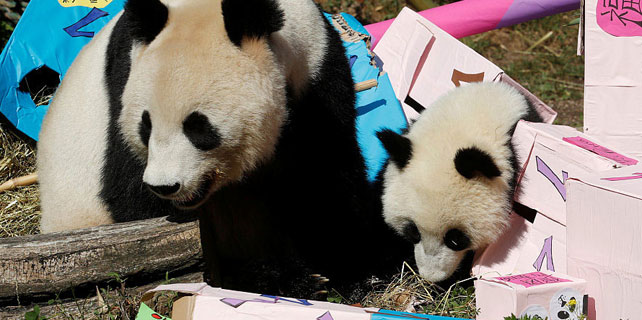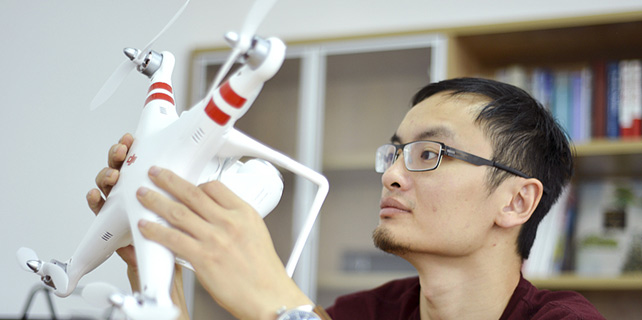A city transforms from petroleum base to tourism city
LANZHOU - Li Na, 26, has been working as a painted-pottery maker for two years at a cultural center in the northwestern Chinese city of Yumen since 2015.
Li had no hesitation to go back to her hometown Yumen in Gansu province, after studying sculpture at a university in central China's Henan province for four years.
"Yumen is famous for its painted-pottery culture. I am happy to become a pottery maker in my hometown," Li said.
The Huoshaogou Ruins, remains of a Bronze Age culture that flourished from about 1900 BC to 1500 BC, were discovered in Yumen in 1976.
Apart from a large number of bronze items, nearly 1,000 painted vessels were also unearthed at the site.
"Different from others in Gansu, Huoshaogou pottery was produced with various colored decorations," said Wang Pu, curator of Yumen Museum.
In 2006, China listed the Huoshaogou Ruins under national protection.
Li bikes for 20 minutes each day to reach the center set up in 2014 by Yumen Art Gallery. It is the only place that officially produces hand-made painted-pottery in the city.
Li said hand-making painted pottery is a very complicated process. From picking clay and modeling to firing and glaze, it often takes days to produce a small batch of pottery.
"Yumen's pottery is all handmade, unlike many other places where painted pottery is produced by machine," Li said.
The pottery will soon be displayed at a number of arts exhibitions, museums and souvenir shops to raise awareness of Yumen's painted pottery.
However, Li would not have been able to find such a job before 2014 when Yumen authorities sped up its transform from an oil drilling town into a cultural and tourism city.
Yumen was the first petroleum base in China which was put into operation as early as 1939. During the 1940s, the oil output in Yumen accounted for about 90 percent of total crude oil production nationwide.
But after decades of development, many oil wells in Yumen have seen dropping output in recent years, with annual oil output reaching a record low in 1999.
The city's prosperity has decreased with the depleted oil resources.
In 2003, local people started to leave the old town for new residential areas or other cities for more job opportunities. The population dropped below 30,000 people, down from from the previous 100,000. House prices in Yumen were less than 500 yuan ($75) per square meter in 2005, while Shanghai saw prices of 9,300 yuan.
Yumen saw a new opportunity in 2013 when China proposed the Belt and Road Initiative, which is poised to bring changes and create development opportunities for people and countries along the ancient trade routes.
Yumen is at the west of the Hexi Corridor, a major part of the Silk Road. It is also only a few hundreds kilometers away from Dunhuang, home to the world-renowned Mogao Caves, and Yumen Guan, the entrance to the old trade route.
Dating back to the second century BC, the city has a long history and many historical sites. There are 126 important cultural sites, including the Huoshaogou Ruins, among which four are under national protection and five under provincial protection.
In the past years, Yumen has allocated a total of 17 million yuan to protect and repair cultural relics, launch museum exhibitions, establish a painted pottery museum and set up cultural centers to foster infrastructure and tourism.
Yumen is also planning to build an "oil culture" theme park to make use of its resources as the first petroleum base in China.
"The Belt and Road Initiative will enhance exchanges among Yumen and countries on the trade route, which will attract more visitors to Yumen from home and abroad," said Gao Zhengsheng, director of Yumen Tourism Administration. "We hope Yumen can take the development opportunities created by the initiative and become a sustainable tourism city."
After it rose by nearly 30 percent in May, Li's monthly salary is about 2,300 yuan and she has a positive outlook for the future.
"The income is not quite enough and life is indeed hard, but everything will be better. My hometown will also become better soon," Li said.






















